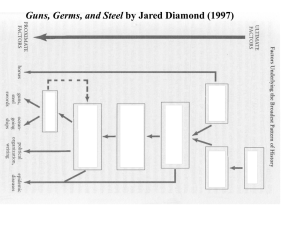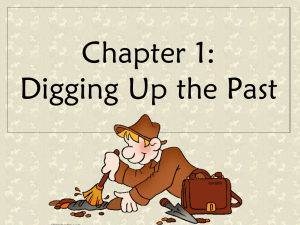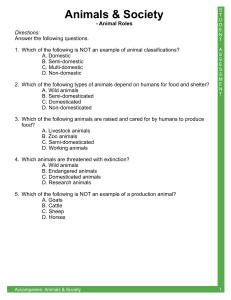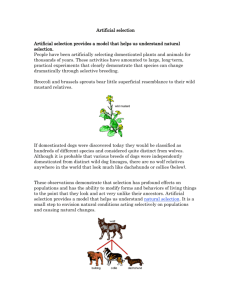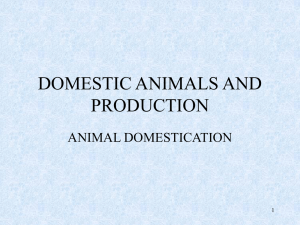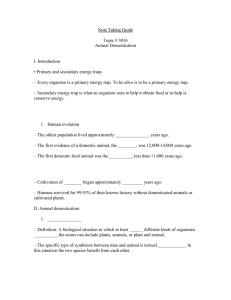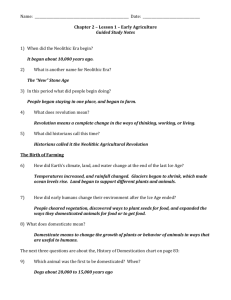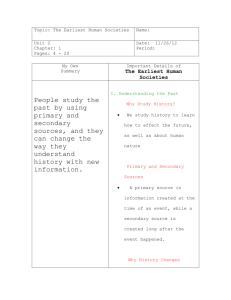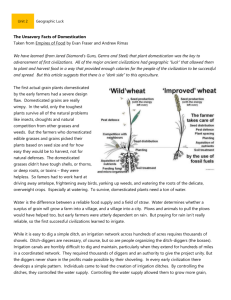Agricultural Revolution- A New Way of Life
advertisement
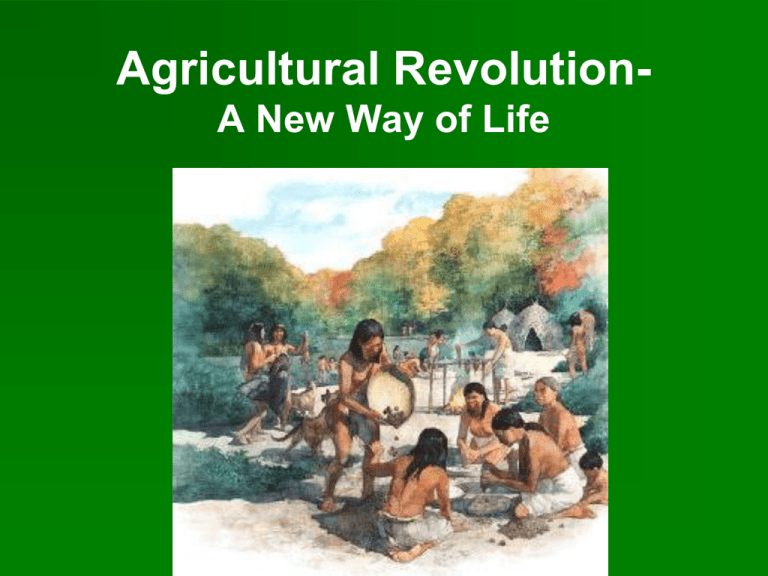
Agricultural RevolutionA New Way of Life The Fertile Crescent Civilization developed slowly in different parts of the world. People began to settle in areas with abundant natural resources, like rich soil and fresh water (rivers). The Agricultural Revolution marked the beginning of the Neolithic Era c. 8000 BCE Agriculture- the growing of plants and the raising of animals to supply food for humans I. Domestication A. Domestication in the Middle East: 1. Plants: wheat & barley 2. Animals: dogs, goats, & sheep B. Differences between wild and domesticated plants and animals: 1. Wild plants were more brittle (thinner stems) and had smaller seeds than domesticated plants. 2. Domesticated sheep were bred to have longer woolly hair, for cloth. C. Both domesticated plants and animals became more dependent on farmers II. Specialization of Labor (New Jobs) A. A larger variety of jobs to perform in farming communities than in hunting and gathering groups. B. People began to specialize, which means to perform a specific job. 1. Specialization led to the beginning of trade. III. New Inventions A. Pottery 1. Pottery is created by firing clay. 2. Making pottery became a specialized job. 3. Properly storing food was essential for survival. B. The Plow 1. Made farming more efficient because it took fewer farmers to provide enough food for a village. IV. A Surplus A. Improved farming methods enabled some farmers to grow a surplus of crops. 1. This meant that they produced more than enough food. 2. This surplus became a form of wealth: an item that could be traded for another item. B. Ownership became important for the first time. V. Writing A. First used to prove ownership. People used stamps called seals to mark ownership. 1. Later, writing was used to record business deals, events, laws and literature. 2. Development of writing marked the end of the prehistoric period. Once people began farming, it became impossible for them to return to being only hunters and gatherers. Why do you think this was so? • They became accustomed to farm-life. • The population was too large to survive as nomads; they needed a food surplus.
